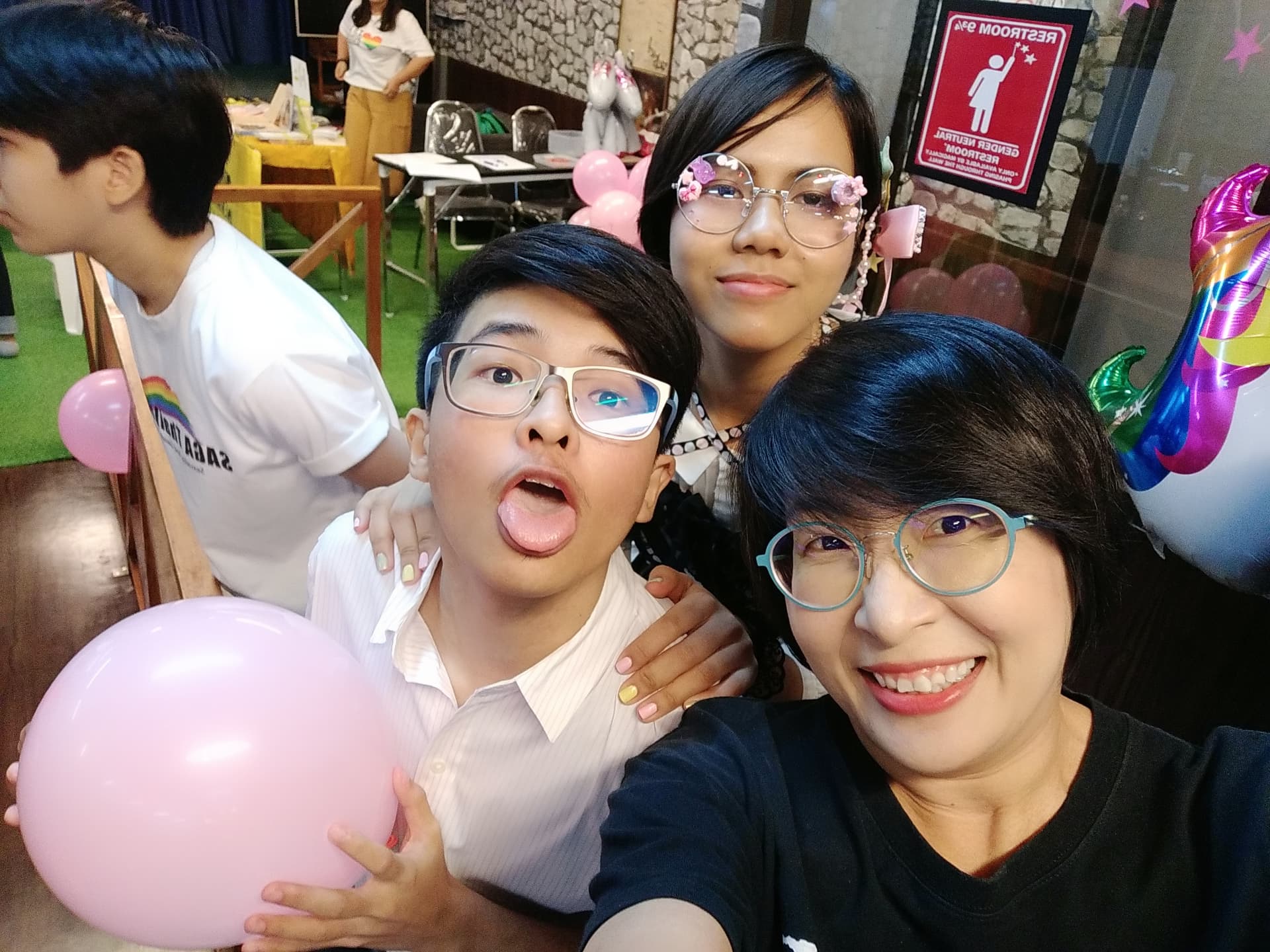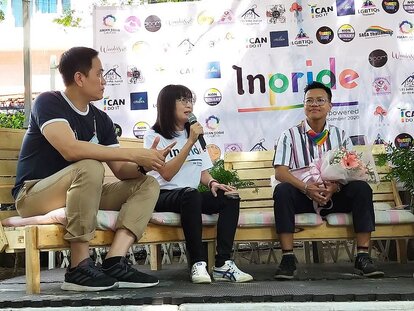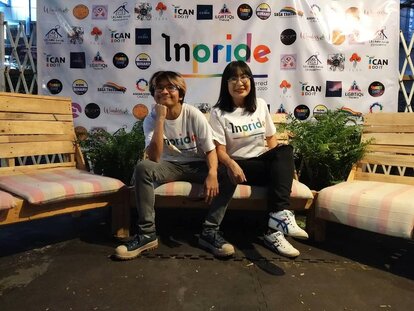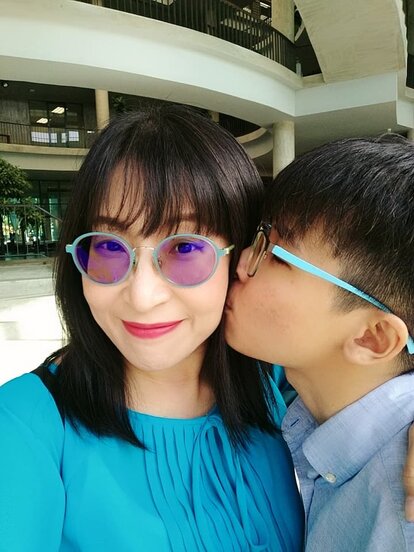Gender Equality
The condition for Unconditional Love: When love is unconditional but must be limited by society.

"My son is a trans-masculine aromatic asexual."
For many readers, the words uttered by Khun Angsumalin may sound complicated, like the name of a menu in a famous coffee shop. Thus, she started the conversation by defining the words we often hear in this article.
Transgender refers to people whose gender identity does not match their sex at birth - for example, transgender women.
Aromatic has little or no interest in romantic love, which will have many different levels.
Asexual: A person who has little sexual attraction. It doesn't mean that you don't have sexual ability. There is masturbation, and you can generally have sexual intercourse.
In the past, we didn't have these terms. People might have friends who came to them for advice, saying they loved their partner but didn't want anything sexual. Is that normal? Indeed, these matters are about diversity and not something abnormal.
Beliefs and memories: What conditions does Thai society impose upon Motherhood?
Some people still believe that sexual diversity is abnormal, although growing acceptance exists. However, it's not as widespread as it should be.
Some memories and stereotypes come to mind when we talk about LGBTQ. Lesbians tend to be portrayed as violent, jealous, angry and unable to control their emotions. Many still believe that being LGBTQ results from a poor upbringing, a lack of education, and negative influences. In reality, LGBTQ individuals are simply expressing themselves. When I was a kid, my parents told me not to hang out with misbehaving friends, right? Another phrase often used in Thai society is “Don't be friends with a Dee or a tomboy, or you'll be like them”, as if it was contagious. If this suggestion were proper, surely there would be no LGBTQ individuals, as they would all conform to the majority’s heterosexual norms.
As people grow older, some become less understanding and use derogatory terms, further complicating the interpretation of LGBTQ... Knowledge and understanding are not yet widely disseminated.

"No child wants to disappoint their parents. They want to be accepted, understood, and supported by their parents: If the children receive encouragement from their family, their hearts will be fulfilled."

“Understanding” is the door that opens our hearts and brings us closer together.
Communicating with those around us to understand our children is very important. Parents need to find information to understand their children, especially when searching for their identity, because the hardest thing to do is show your true self to your family.
"No child wants to disappoint their parents. They want to be accepted, understood, and supported by their parents: If the children receive encouragement from their family, their hearts will be fulfilled."
This is essential for LGBTQ individuals, especially children who may not know themselves yet. Many households do not accept their child’s identity, resulting in the individual lying to their parents and staying home as little as possible, mainly if the family results in violence. Some families believe that if violence is used, the child will become a ‘man’ again. Or women if they are lesbians. This is known as “Fix Tom " and, Fix Dee” and refers to correcting an individual's sexual orientation. Words such as these feel like a threat to the LGBTQ+ community.
We need to work on this in our society, fostering more understanding. Sometimes, medical information is hard to access, and many doctors are now educating themselves about sexual diversity. There is a course organised by Thammasat Hospital that teaches about sexual diversity. To improve societal understanding, we must collaborate from various angles, including medical professionals, educators, and researchers.
Not only does the LGBTQ individual face these challenges, but their families too.
I am often asked how to understand our LGBTQ children. Or a child asks how to get the family to accept them for who they are. If the family understands them, they will be more resilient in facing life's challenges. No matter their problems, they will know they have a safe place at home. On the contrary, they will live in hiding if they cannot express their true selves at home. It can be very distressing in households that resist, view their child as a problem, or don't accept them. They may feel like they're never good enough or received, regardless of their success in the outside world.
Creating a safe space, active listening without judgement, and non-judgemental communication are essential. Her child once told Ms. Angsumalin not to treat him like a girl. We may need to give others time to learn, too. Adapt to new information Sometimes, it comes not from intent but from ignorance.
We need to appreciate each other. We must remember that many parents were not in the same environment as us. They were raised with different perspectives and need time to accept and change their views, just like us.
We must also communicate with the children who come to us for advice from this perspective.
"When my son came to tell me about his new identity. Society has yet to accept him entirely. My initial feeling as a mother was joy that he was honest with me, but then I became worried. I feared he would face difficulties and society wouldn't embrace him.
We see news of gender discrimination all the time, from school to the workplace. It is a concern as a mother, but we are always ready to stand by him.”

"Some parents blame themselves for their children becoming LGBTQ. Some people suffer from depression because they are disappointed in themselves or are heartbroken, especially if there is a cultural issue. Especially when religion is involved, The first person society blames is always the mother".

It's time for the state to 'COME OUT' together.
On days when our children want to change their appearance, it's about health, not beauty. If they do it secretly, it can be dangerous and risky. Even some families say they accept it. It was a tacit acceptance, not learning or discussing each other's feelings.
"I want every family to communicate with each other. Communication is essential in any relationship.
Moreover, it's crucial for the state to accept and support coming out together. The state should support equal marriage rights because this is the foundation of true societal equality. Parliament must support the Equal Marriage Act because it guarantees equality in society. It ensures the right to be a person like everyone else. We have not asked to be more special or privileged.
The issue of recognising gender diversity in official documents, using gender-neutral titles, protecting the rights of sexually diverse individuals, and even the right to access hormones – we still haven't received any support from the state.
The ideal Mother's Day for mothers
In reality, this holiday highlights significant differences and stark disparities. Khun Angsumalin mentioned to the team that the suffering of parents who are disabled, impoverished, or even divorced is emphasised during this occasion. It's a ceremony that significantly harms the hearts of many. It might be better to cancel it altogether. We should teach our children about gratitude without needing traditions that force us to express love in that manner.

To families where society has no conditions for their love.
Sexual diversity is an issue that concerns all of us, whether or not we have LGBTQ individuals in our families. we should teach our children, regardless of gender, to express their identity respectfully and equally to everyone. That's the kind of society we want to see and want our children to grow up in together
